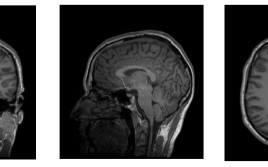Transcript
This podcast is about the relations between the social sciences and the neurosciences, and what it might mean to do interdisciplinary work between these areas. Des Fitzgerald and Felicity Callard, two social scientists interested in stepping outside the bounds of social-science methods, and especially experienced in engaging with neuroscientific experiments, offer a new way of thinking about collaboration between the social- and neuro-sciences. They call their approach ‘Experimental Entanglements’.
Research on the brain, as well as the widespread dissemination of this research, has significantly shaped our understanding of what it is to be human in the 21st century. Indeed, many facets of human life that were, for much of the twentieth century, primarily understood through the abstractions of ‘culture’ or ‘society’ – commercial and economic life, historical change, identity, mental illness – are increasingly understood as functions of the cerebral architecture of individuals or of groups of individuals.
This rapid growth in the neurosciences has produced a wide variety of reactions. Steven Pinker has recently argued that neuroscience offers the greatest intellectual resource for the humanities and social sciences; Raymond Tallis has, in contrast, argued that it poses the gravest of intellectual threats. Indeed, Tallis is far from being the only one to have worried about the reductive and potentially anti-humanist tendencies of the neurosciences.
And yet, beyond such debates, it is increasingly clear that the more that scientists experiment on and with the human brain, the more it becomes clear that our brains, and the experimental and intellectual practices that attend to them, are bound up in cultural, semiotic, bodily, societal and aesthetic ‘webs’. The current situation in cognitive neuroscience – with techniques such as functional neuroimaging available in ever more sophisticated forms – is ripe for a new level of interdisciplinary engagement.
In the last few years, both Callard and Fitzgerald have participated in a number of explicitly designed ‘interdisciplinary’ ventures that have attempted to bring neuroscientists and social scientists together. The European Network of Neuroscience and Society (ENSN) and the Volkswagen Foundation’s European Platform for Life Sciences, Mind Sciences and the Humanities are two of these. Indeed, Fitzgerald and Callard first developed their approach of ‘experimental entanglement’ in a workshop held at the Max Planck Institute for Human Development, which they co-designed, and which was funded by the Volkswagen Foundation. In this podcast they reflect especially on the opportunities and constraints offered by such ‘interdisciplinary’ ventures. They counter a model in which social scientists and neuroscientists simply ‘interact’ with one another, secure in their own disciplinary arenas, and instead propose a much more complex and awkward practice of ‘experimental entanglement,’ in which to collaborate both in and beyond the neuroscientific laboratory.
The podcast touches on existing experimental collaborations. Fitzgerald discusses his research in the Urban Brain Lab at King’s College London, which focuses on the overlap between sociology and neuroscience in questions around city life and mental health – and asks what a shared investigation across these disciplines can and should look like. Callard discusses her on-going collaboration on the brain and mind ‘at rest’ with neuroscientists and psychologists. For much of the twentieth century, psychologists were heavily preoccupied with studying how people respond to external tasks, which made it harder for scientists to bring together biology, psychology and culture to get at what the brain, mind and body are doing when they are ‘at rest’ (i.e. not responding to an external task).
In contrast to usual social scientific interest in effects, ethics, or outcomes of the neurosciences as such, Fitzgerald’s and Callard’s collaborative approach focuses on the ‘experiment’ as a space of creative intervention – and it uses the concept of ‘entanglement’ to current bureaucratic and academic fixations on ‘engagement’ and ‘dialogue’. What could experimental practices look like in the twenty-first century, they ask, in which so-called neurological knowledge and so-called sociological and cultural knowledge tumble over one another in a way that ultimately makes it hard to distinguish one from the other?
Their programmatic statement about such an approach is available, Open Access, in the journal Theory, Culture & Society (‘Social Science and Neuroscience Beyond Interdisciplinarity: Experimental Entanglements’). They are authors of the forthcoming monograph Rethinking Interdisciplinarity across the Social Sciences and Neurosciences (Palgrave). From October 2014, Fitzgerald will participate in, and Callard will be Group Leader of, the inaugural project in The Hub at Wellcome Collection, working with neuroscientists, artists, social scientists and humanities scholars to develop experimental entanglements that are focused around rest, busyness and exertion at the scales of the brain, mind, body, organism and city.
Tags: Collaborative Science, Des Fitzgerald, Experiment, Felicity Callard, Laboratory, Neuroscience, Rest, Resting State, Sociology, Theory Culture Society


Pingback: Neuroscience and Social Science: Experimental Imaginations | Centre for Medical Humanities
Pingback: Neuroscience and Social Science: Experimental Imaginations | The Wonder of Twins
Hi very interesting and amazing work which open us new doors into
the neurosciencies and its relationships with others sciences
so go on with this never ending amazing scientific discoveries
dreetings
huperegrino
Really glad you enjoyed listening to this, Ricardo. Do follow the Wellcome Trust’s pages for the new Hub, http://www.wellcome.ac.uk/Funding/Public-engagement/Funding-schemes/Hub-Award/index.htm There you will find lots of information about this and allied projects, led by Felicity, Des, and others.
Will.
Pingback: Entangled in the collaborative turn: observations from the field | Somatosphere
Great Podcast, as a neuroscientist it is enlightening to hear how our collaborators on the other side of the fence feel about the links that are emerging between our fields.